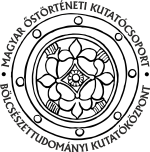Somfai Kara Dávid
Magna Hungaria nyomában – baskírok és magyarok. Baskíria és a baskír nép szerepe a magyarok korai történetében / Tracing Magna Hungaria – Bashkirs and Hungarians. The role of Bashkiria and the Bashkir people in the early history of the Hungarians
HUN-REN Bölcsészettudományi Kutatóközpont Magyar Őstörténeti Kutatócsoport Kiadványok 10 (2024)
DOI 10.55722/Arpad.Kiad.2024.10_07
A baskurt (baskír) szájhagyomány fontos része az epikus hagyomány. Ennek az epikus hagyománynak két fajtája van: a nogaj epikus ciklus és Urál bátor ciklusa. A nogaj epikus hagyomány egyértelműen a baskírok kun-kipcsak kapcsolatát igazolja, mely az általuk beszélt nyelv alapján is egyértelmű. De az Urál bátor epikus ciklus mitológiai háttere teljesen eltér a többi török népétől. A kipcsak-török népek (kazak, karakalpak, nogaj, kongrat-özbek) körében elterjedt történeti eposzokkal ellentétben az Urál bátor mitikus témájú. De míg a dél-szibériai törökök (tuva, hakasz, altaj-telengit) hasonló témájú eposzainak mitológiai háttere az ótörök mitológia világába vezet el minket, addig az Urál bátor eposznak az iszlám előtti iráni mitológiával (Sáh-náme) vannak párhuzamai. Vajon tudunk-e következtetni a baskírok etnikus eredetére az epikus hagyomány mitológiai hátterének vizsgálata alapján? A baskírok esetleges proto-iráni eredete milyen kapcsolatban áll a magyarság kialakulásával?
Kulcsszavak: Epikus hagyomány, baskírok, Urál bátor, iráni mitológia, török és iráni kapcsolatok
Epic tradition is an important part of the Baškurt (Bashkir) oral tradition. There are two types of this epic tradition: the Nogai cycle and the Ural batyr cycle. The Nogai epic tradition clearly proves a partly Kuman-Kipchaks origin of the Bashkirs, whose language they speak today. These are historical epic stories from the formation of the Nogai Horde (14-15th centuries) and their fight for independence (16th century). But the mythological background of the Ural batyr epic cycle is completely different from that of other Turkic peoples. In contrast to the historical epics common among the Kipchak peoples (Kazakhs, Karakalpaks, Nogai, Uzbeks), the Ural batyr epic has a mythical theme. While the mythological background of the similarly mythical epics of the South Siberian Turks (Tuva, Khakas, Altai-Telengit) leads us to the world of Old Turkic mythology, the Ural batyr epic has parallels with the pre-Islamic Iranian mythology (Shah-name). Can we assume the ethnic origin of the Bashkirs based on the analysis of this epic tradition and its mythological background? How is the possible Proto-Iranian origin of the Bashkirs related to the formation of Hungarians?
Keywords: Epic tradition, Bashkirs, Ural batyr, Iranian mythology, Turkic and Proto-Iranian relation





